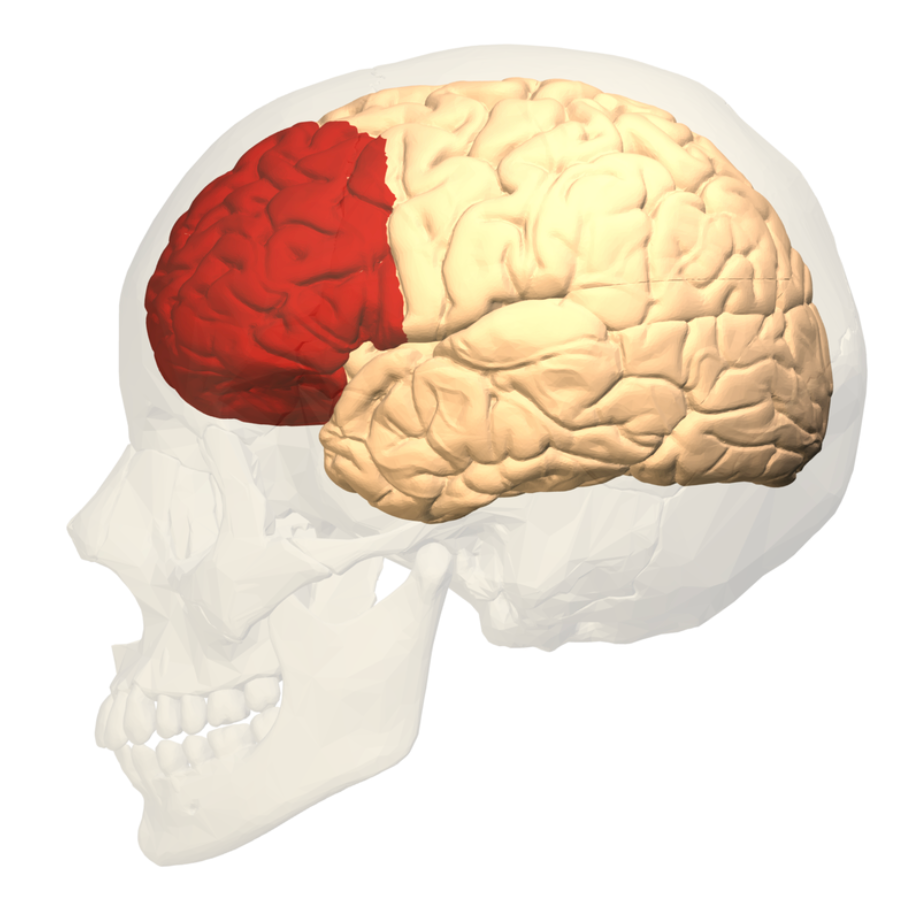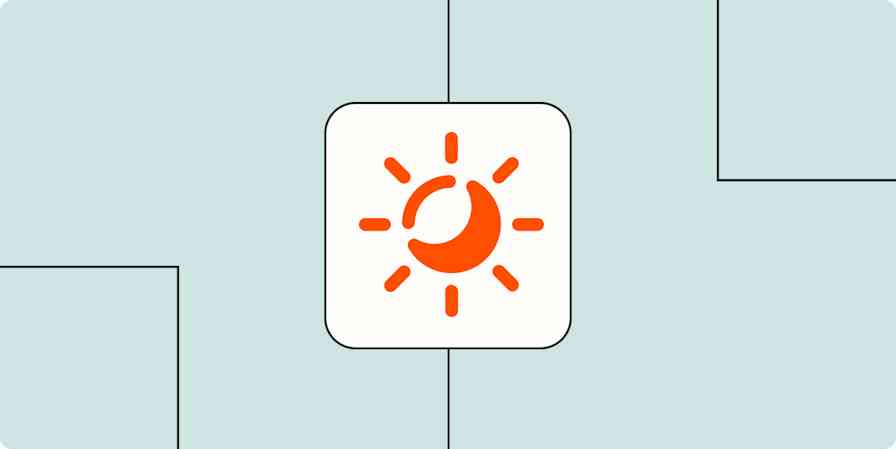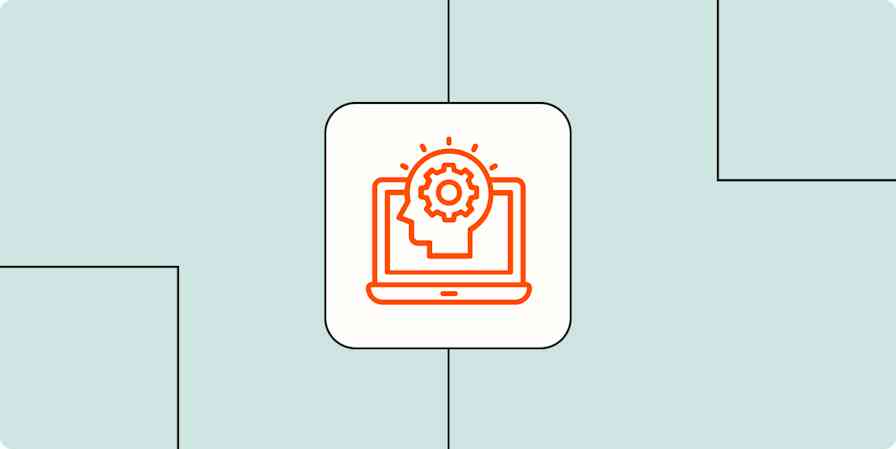Do you ever hear people talk about how mindfulness changed their lives—and immediately react with knee-jerk skepticism?
For many people, it's difficult to believe that not thinking could have the power to change the way they think. But research suggests that it just might.
As mindfulness and meditation enjoy a renaissance in the West, we're also beginning to empirically study the effects they can have on our brains. Plenty of successful CEOs have provided anecdotal evidence about mindfulness's power to increase focus, decrease stress, and clear the mind—and now we have data that backs those claims up. Here's how it all works.
Read more about how to incorporate mindfulness into your business.
What is mindfulness, exactly?

Mindfulness is hard to explain. In fact, the definition is one of the prompts some people reflect on when trying to achieve mindfulness.
In essence, mindfulness is the practice of being especially conscious or aware of what's happening in the current moment. Some people equate mindfulness to not thinking at all, but that's not really accurate: what's missing from your head is distractions, but not all thoughts. If you're mindful at work, you should be thinking too.
Meditation is just one way of practicing mindfulness, so mindfulness isn't something that happens only when you meditate. That said, meditation is one of the most widely practiced mindfulness techniques—so a lot of the research around mindfulness focuses specifically on meditation.
One final relevant aspect of mindfulness is emphasizing the process over the outcome. Part of being in the moment involves submitting fully to the task at hand, rather than focusing on what the results will be (and how they'll affect you). This inherently lends itself to productivity because you stay focused on your work instead of thinking about the intangible future.
How mindfulness affects the brain
Stripping away the mysticism, how exactly does mindfulness affect the brain? Research has documented the success of mindfulness in a wide range of practical applications, from mental health treatments like PTSD recovery to helping us have a more positive self-perception.
The positive effects of mindfulness can be considered an ancient secret from prehistoric times, but it's only recently—thanks to the latest developments in MRI, EEG, and other brain-scanning technology—that we've been able to scientifically confirm what the gurus have known for centuries.
For starters, some kinds of meditative activities have been shown to increase the brain's amount of alpha waves, which are the brain waves associated with a relaxed state of mind and creativity. Based on the evidence, it's clear that mindfulness can deliver on its promise of relaxation, just as advertised.
But meditation might have benefits beyond simply chilling you out or helping you feel more artsy. A small but ground-breaking 2005 study showed that meditation can actually increase brain density in the prefrontal cortex.

To simplify a complex subject, the prefrontal cortex is what separates humans from animals—it's far more developed in humans than it is in our furry friends. The prefrontal cortex is responsible for much of our conscious thought and reasoning, including empathy, self-awareness, intuition, morality, and the ability to focus through emotional turmoil.
With that in mind, it's easy to see how mindfulness could improve your productivity by exercising the right parts of your brain. Let's look at each area individually.
Focus and memory
A stronger prefrontal cortex (and a related part of the brain, the hippocampus) can give you more control over your thoughts, even the unproductive ones. A 2018 study published in Brain Imaging and Behavior confirmed what an older University of California study had shown: mindfulness training might improve your working memory. In these studies, mindfulness both "reduced mind wandering" and cut down on proactive interference, which is when things you've previously learned impede your ability to learn and recall new things.
It's worth noting, though, that the evidence is fairly nuanced. For example, another study showed that mindfulness meditation doesn't increase working memory directly, but that it does relieve stress-related memory impairments. So while meditation might not improve your memory itself, it can help by making you less stressed—and we'll cover that more in-depth later. Either way, it's a boost for your brain!
Decision-making
Because big decisions are made in the prefrontal cortex, it stands to reason that mindfulness could be a great aid in making better choices. While it's a difficult topic to quantify and measure, what we do know—thanks to a University of Pennsylvania study—is that mindfulness can mitigate the sunk cost bias. By emphasizing temporal relations and presenting a clearer and more objective viewpoint, meditation fortifies your brain from making biased decisions.
Stress relief
For many people, stress relief is reason enough to delve into mindfulness. Although scientific documentation is somewhat unnecessary—you can just see for yourself how meditation relieves stress—a John Hopkins University study has concluded that "meditation programs can result in small to moderate reductions of multiple negative dimensions of psychological stress," defined in the paper as "anxiety, depression, and stress." The study also noted the positive effects of mindfulness on "improving physical symptoms (e.g., pain)." While it's not a one-size-fits-all solution for stress or mental health issues, mindfulness can be a good tool for reducing the negative impact they can have on your life (and your work).
Relationships with coworkers
Especially in business, it's often taken for granted that collaboration and teamwork are trainable skills, and some workers are better at them than others. Researchers are beginning to explore the effects mindfulness might have on work relationships, suggesting that perhaps the interpersonal benefits of mindfulness could make it a useful tool for improving team collaboration.
Creativity and problem solving
For something as ethereal as creativity, it's surprising how much empirical evidence there is showing its connection to mindfulness.
First, a Leiden University study showed that meditation's effects on divergent thinking were "robust." Divergent thinking is the process of creating multiple new and original ideas, as opposed to convergent thinking, which is more about deducing a single conclusion from various inputs.
When it comes to creativity, however, the evidence is a bit less clear. A meta-analysis of several studies demonstrated a statistically significant (but relatively weak) correlation between mindfulness practices and improved creativity. Ultimately, the benefits depend on the type of mindfulness practiced.
Experts have also pointed out that mindfulness facilitates three out of the four stages of the creative process:
Preparation—Enhanced divergent thinking creates a greater amount of ideas to start with.
Incubation—At some point, your brain needs to stop actively generating ideas and spend time passively processing them instead. Mindfulness makes it easier to relax and temporarily forget about a dilemma, an integral stage of the creative process.
Illumination—More self-awareness and awareness of one's thoughts strengthens the connection to the subconscious, making Eureka moments easier to come by.
The fourth stage, verification, relies more on logical evaluation and fine-tuning the idea; that kind of thinking is outside the purview of mindfulness.
Happiness
Can you really put a value on happiness? Yes, and that value is 12%—that's how much more productive happy workers are, according to a University of Warwick study. Even 12% is a conservative estimate—some subjects reached productivity as high as 20% more than the control group.
We've already discussed how mindfulness reduces stress, but a University of North Carolina-University of Michigan study reveals a more direct correlation between a specific type of meditation known as loving-kindness meditation and positive emotions. The study also showed a direct correlation between time spent meditating and a person's "capacity for happiness and a reduced propensity towards negativity." Even subjects with "only three weeks of 20-minute meditation per day" showed slightly better results than those who didn't meditate at all.
How to attain mindfulness through meditation
Although mindfulness is often referred to as a natural state, the truth is that attaining it is more like a skill: it needs to be practiced and honed before being properly utilized. There's no shortage of distractions in modern society, and it takes time to train yourself to tune them out. While some people have had success in learning mindfulness skills on their own, others have better luck joining a group or studying under an expert.
Because attaining mindfulness takes practice and training, the topic is closely linked to mediation, the most popular method of achieving it (but not the only one). Meditation is likewise hard to explain—it's more like the absence of action than an action itself. On top of that, there are many different ways to meditate, from centuries-old Zen Buddhist methods to more recent guided meditations designed for busier times.
The common thread in all mediation is the goal of bringing your attention to the experiences of the present moment—in other words, achieving mindfulness. Guides encourage meditators to observe their thoughts, but not engage. The methods vary, but many involve focusing on your senses, such as a slight breeze on your skin.
In the absence of other sensations, you can always meditate on your breathing; for example, if you focus enough, you'll notice that air is colder coming into your nose and warmer coming out. That's as good of a prompt as any to start you off.
Meditation makes some people think about monks sitting crossed-legged in an isolated stone temple, but it can just as well be you sitting at your desk and closing your eyes for a few minutes. Call it whatever you want, but taking a moment for yourself to calm down has pretty obvious value. You've likely been meditating here and there your entire life without even realizing it.
4 ways to apply mindfulness at work
1. Meditation exercises
Meditation doesn't have to be regimented or intimidating. It can be done virtually anywhere and anytime, just by giving yourself a few minutes. Here are beginner tips on meditating, for whenever you have some free time:
Get comfortable. There's no requirement that you have to be sitting cross-legged and upright to meditate. The most important thing is that you're comfortable, so feel free to meditate in a chair, lying in bed, or even standing if that's what comfortable for you. The idea is to minimize distractions, so find a position you can maintain without problems.
Scan your body for tension. Starting at the top of your head and working down, notice any points in your body with tension and release it. The usual suspects involve your brow, your shoulders, your neck, and sometimes even your jaw.
Don't beat yourself up for thinking. Naturally, it's not easy to clear your mind of all thought. Don't get frustrated at yourself for not being able to shut off your mind—it happens to everyone, even meditation experts. Rather, simply observe these thoughts as they "float by" your consciousness. Letting them come and go is part of the process. As long as you don't engage them, it still counts as meditating.
4-7-8 breathing technique. Here's a good method for beginners who have trouble clearing their minds: Focus on your breathing, specifically using the 4-7-8 technique:
Breathe in for four seconds.
Hold your breath for seven seconds.
Exhale for eight seconds.
Repeat.
This is a good "training wheels" meditation for people who struggle with being idle. The instructions are involved enough to keep your mind occupied with counting, but still simple enough that they won't distract from mindfulness.
If it's still too difficult to dive in, you can download a meditation aid app. Apps like Calm act like your own personal meditation coach. With different, voice-guided meditations of varying lengths, these apps can be a great way to start a meditation practice.
2. Avoid multitasking
Multitasking is what you might call a "false friend": it makes you feel like you're more productive, but research shows it doesn't help us get more done and can actually negatively impact the quality of our work—and our mental health.
All multitasking does is water down your efforts for each task, as opposed to applying full focus to each. Completing one task at a time, however, helps train your focus, fitting hand-and-hand with mindfulness.
This is where Zapier comes in handy. As an automation app, you can easily program menial tasks to be completed automatically—the same kinds of tasks that are tempting to do with multitasking because they seem small and brainless.
Zapier is a no-code automation tool that lets you connect your apps into automated workflows, so that every person and every business can move forward at growth speed. Learn more about how it works.
3. Be consistent
To get the most out of mindfulness, you have to practice it regularly. A common piece of advice for newcomers is to meditate at least once a day and turn it into a habit. As we learned from the UNC-UM study above, twenty minutes of meditation per day can produce observable results in only three weeks.
Daily meditation doesn't have to take long, but when you're just starting out, the trouble is less about the time commitment and more about actually remembering to do it every day. During those first few days, set an alarm reminder so you don't forget. You can pick whatever time of day is best for you, as long as you do it.
And remember: mindfulness and meditation are a practice, meaning you can't fail at them. If your thoughts wander off during your session, gently bring your brain back into the moment.
4. Professional guidance
Are you interested in mindfulness training for your entire organization? Getting an individual to embrace mindfulness seems easy compared to getting a group of people on board, but you can still enlist the help of experts or agencies for company-wide implementation.
There are plenty of programs to teach business-centric mindfulness. Search for groups under MBSR (Mindfulness-Based Stress Relief) or MBCT (Mindfulness-Based Cognitive Training), with most courses lasting four to eight weeks. Alternatively, you don't need an in-house trainer if you use an online course or webinar. These are more flexible with logistics, and can offer the same quality of instruction.
Want to start with something a little less formal? The mindfulness app Insight Timer facilitates communication with the meditation community, and can help you find the right guides or mentors. You can search for teachers in your area, or just follow the advice you find there on your own.
If you're really serious about maximizing your productivity—to say nothing of improving your life and happiness—mindfulness isn't something to brush off. It may feel fluffy at first, but with research backing up its effects, it's worth trying out for yourself, or your entire team.
Read more: How trauma affects your work—and what to do about it
Image of stones from PIRO4D via Pixabay. Image of prefrontal cortex from the Database Center for Life Science via Wikipedia. This article was originally published in February 2019 and has since been updated with contributions from Hannah Herman.





